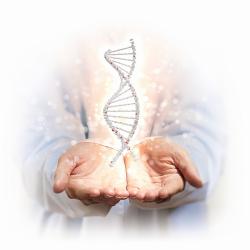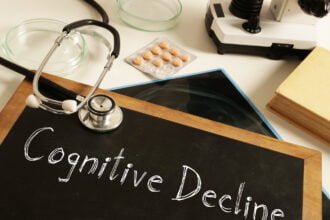 Medical treatments are based on the general population and success treating people with similar symptoms. It may be hard to imagine the entire field of medical science oriented to you, or what is called personalized medicine. The recent advances in exciting new microscopic fields of medicine may indicate that personalized medicine may one day become a reality.
Medical treatments are based on the general population and success treating people with similar symptoms. It may be hard to imagine the entire field of medical science oriented to you, or what is called personalized medicine. The recent advances in exciting new microscopic fields of medicine may indicate that personalized medicine may one day become a reality.
 Medical treatments are based on the general population and success treating people with similar symptoms. It may be hard to imagine the entire field of medical science oriented to you, or what is called personalized medicine. The recent advances in exciting new microscopic fields of medicine may indicate that personalized medicine may one day become a reality. We will soon add “Proteomics,” “Microbiome” and “Probiotics” to our vocabulary as we get closer to the patient-centric healthcare we want.
Medical treatments are based on the general population and success treating people with similar symptoms. It may be hard to imagine the entire field of medical science oriented to you, or what is called personalized medicine. The recent advances in exciting new microscopic fields of medicine may indicate that personalized medicine may one day become a reality. We will soon add “Proteomics,” “Microbiome” and “Probiotics” to our vocabulary as we get closer to the patient-centric healthcare we want.
Proteomics
Once the first human genome was sequenced in 2000, people began wondering when we would have personalized medicine based on our unique DNA. While our genes can tell what we are predisposed for, they don’t tell us what is actually happening within our cells. A Virginia healthcare startup recently announced a new service for stage-4 cancer patients. The service analyzes human genome, proteins within the cells and the activity of the proteins. The service combines this with the past medical history to recommend the most effective personalized treatment.
The proteome is the entire set of proteins, produced or modified by an organism or systems. The proteins vary with time, stress and activity within the cell or organism. There are already services that test the human genome and the tumor genome, this new service tests the proteins. This can help in selecting the right treatment and/or chemo drug. Personalized cancer treatment is the area where personalized medicine shows the most promise.
Microbiome
The study of the microbiome is recent scientific advancement that is beginning to inspire promising new treatments. Some call it the newly discovered organ. With human body containing over 10 times more microbial cells (bacteria, viruses and fungi) than human cells, we are getting acquainted with our many inhabitants. The Human Microbiome Project is characterizing the human microbiome and analyzing the role (beneficial or harmful) of each microbial cell in health and disease. For as low as $89, microbiome lab tests are now available to identify and sequence the microbes in your gut and other areas.
Probiotics
When we take antibiotics, both the harmful and beneficial bacteria are killed within our microbiome. The lack of beneficial bacteria causes many human complications. A recent study demonstrated the effectiveness of injesting beneficial bacteria in effectively treating the difficult C. difficile infection. CureMark announced a drug that uses the digestive system to treat autism. The emerging new field of probiotics (beneficial bacteria) will soon produce many new treatments including treatment of antibiotic resistant infections.
The days of “try this pill and let me know how it goes” may soon be replaced by a treatment based on our genome, proteins, genetic makeup of cancer cells, microbiome and medical history.
(dna and personalized care / shutterstock)








